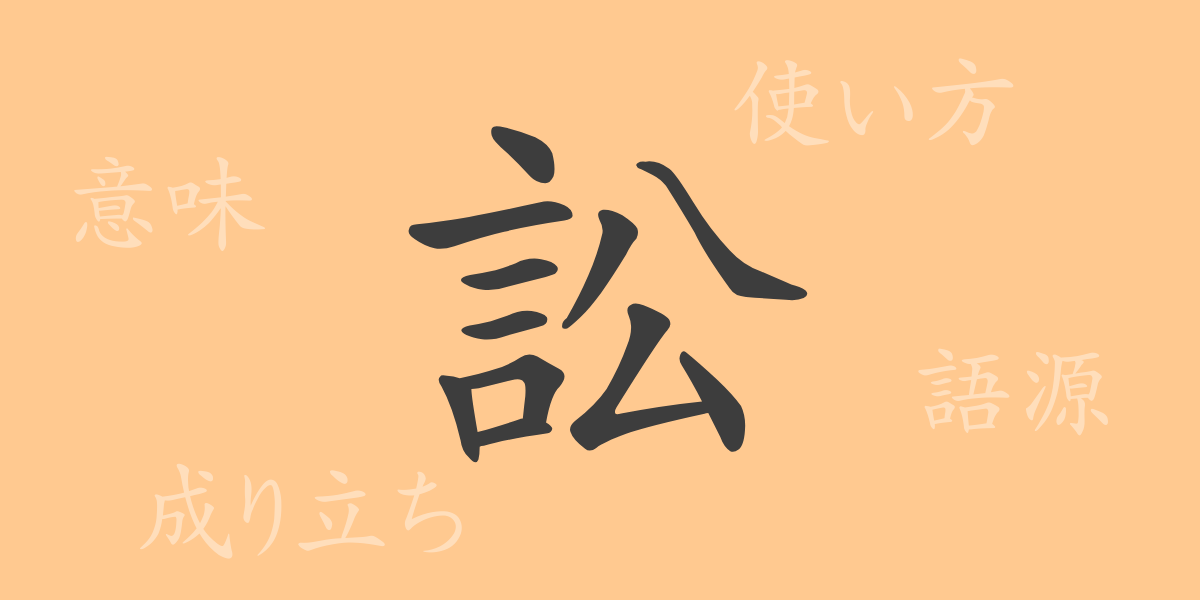The richness and complexity of the Japanese language are often encapsulated in its kanji characters, each with its own unique history and meaning. “訟(しょう)” is one such character that, while not commonly encountered in everyday life, plays a significant role in legal and contentious contexts. This article delves into the origins, meanings, and uses of “訟(しょう),” exploring related idioms and proverbs to uncover the depth and cultural significance embedded within this character.
Origins of 訟(しょう)
The kanji “訟(しょう)” originates from ancient Chinese script, combining the radical for speech “言” with “公,” which signifies public or just. This combination historically depicted ‘disputes articulated through words’ or ‘to litigate.’ Over time, it evolved to specifically represent legal disputes and litigation, becoming a standard character used across kanji-utilizing cultures, including Japan, to denote legal conflicts.
Meaning and Usage of 訟(しょう)
“訟(しょう)” primarily refers to legal disputes or litigation. It is used to describe conflicts handled in court or through legal proceedings and, metaphorically, can also refer to arguments or disputes among people. This character is predominantly found in specialized contexts and legal terminology, rarely appearing in casual conversation.
Pronunciation, Stroke Count, and Radical of 訟(しょう)
The kanji “訟(しょう)” offers insight into its pronunciation and composition:
- Pronunciation: The on’yomi (音読み) is “ショウ,” with no commonly used kun’yomi (訓読み).
- Stroke Count: “訟(しょう)” is composed of 11 strokes.
- Radical: The radical is “言” (ごんべん), related to speech and words.
Idioms and Proverbs Using 訟(しょう) and Their Meanings
Idioms and proverbs containing “訟(しょう)” typically relate to law and disputes:
- “訟勝訴敗(しょうしょうそはい)”: A phrase meaning ‘victory and defeat in litigation,’ referring to the outcomes of legal actions.
- “民事訟訟(みんじそうじょう)”: Pertains to civil litigation matters, often encountered in legal contexts.
Summary on 訟(しょう)
The kanji “訟(しょう)” has been a symbol of legal disputes and litigation from its origins to modern use. While not commonly used in everyday life, it is indispensable for those involved in law. As a unique element of Japan’s common kanji, its specialized meaning and applications enrich the Japanese language, offering a glimpse into the legalistic aspects of Japanese culture. Through exploring “訟(しょう),” we can appreciate the powerful role language plays in expressing complex human interactions and legal concepts.

























